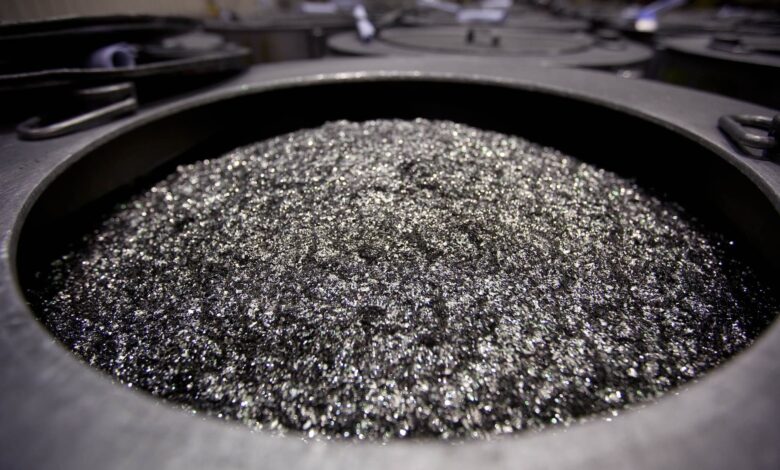The West is recycling rare earths to escape China’s grip — but it’s not enough

The global supply chain for rare earth minerals is facing a significant shift as China continues to tighten its grip on key resources. In response, the West is actively seeking alternatives to reduce its dependence on Chinese rare earth minerals.
One key strategy involves developing technologies to extract rare earth minerals from domestic recycled products. For example, the U.S. Department of Defense recently invested $4.2 million in Rare Earth Salts, a startup focused on extracting rare earth oxides from products like fluorescent light bulbs. Similarly, Japan’s Toyota is investing in technologies to reduce the use of rare earth elements in its products.
China currently controls a significant portion of the global rare earth market, with 69% of mine production and nearly half of the world’s reserves. This dominance has raised concerns about supply chain security, particularly in industries like electric vehicles (EVs) that rely heavily on rare earth minerals.
According to analysts, a typical single-motor EV contains around 550 grams of rare earth components, compared to just 140 grams in gasoline-powered cars. As EV adoption continues to grow, the demand for rare earth minerals is expected to increase.
To address this challenge, companies are exploring ways to reduce their reliance on Chinese rare earth minerals. By investing in recycling technologies and alternative sources of rare earths, the West aims to create a more diversified and secure supply chain for these critical minerals.
In addition to recycling efforts, there is a growing focus on recovering rare earth minerals from end-of-life products. As the first generation of EVs reaches the end of their lifespan, there will be a significant opportunity to extract valuable rare earth materials from these vehicles, creating a new source of supply outside of China.
While recycling and recovery efforts show promise, there are still challenges to overcome in reducing dependence on Chinese rare earth minerals. Establishing alternative sources and processing facilities requires time and expertise, and China’s current control over global refined supply presents a significant barrier to entry for other countries.
As the race to secure rare earth minerals heats up, countries and companies are exploring innovative solutions to diversify their supply chains and reduce their dependence on Chinese resources. By investing in recycling, recovery, and alternative sources, the West aims to create a more resilient and sustainable rare earth supply chain for the future. The use of minerals in defense is crucial for the production of various military equipment, including fighter jets like the F-35. According to the Center for Strategic and International Studies, the F-35 fighter jet contains over 900 pounds of rare earths, highlighting the significant role minerals play in the defense industry.
In recent years, China has expanded its control over a broader category of metals known as critical minerals. This includes metals like gallium, germanium, and antimony, which are essential for chipmaking, strengthening other metals, and producing bullets and nuclear weapons. The State Council of China released a policy in October aimed at strengthening controls on exports of minerals with dual-use properties, which can be used for military and civilian purposes.
One surprising restriction imposed by China was on tungsten, a critical mineral used in weapons, cutting tools, semiconductors, and car batteries. China produces about 80% of the global tungsten supply, with the U.S. importing 27% of tungsten from China. This reliance on Chinese supply poses a significant risk for industries that heavily rely on tungsten, such as electric car batteries.
Michael Dornhofer, founder of a metals consulting firm, highlighted the challenges in recycling tungsten from electric car batteries, as it may take up to seven years for the metal to be reused. Despite efforts to diversify the supply chain, the dominance of China in tungsten production remains a concern for industries outside of China.
Lewis Black, CEO of a tungsten mining company, emphasized the importance of establishing non-China sources of tungsten to meet the defense needs of the U.S., Europe, and South Korea. While efforts are being made to address the supply chain vulnerabilities, industries like autos, medical, and aerospace still face challenges in securing an adequate supply of critical minerals like tungsten.
Overall, the control of critical minerals by China underscores the importance of diversifying the supply chain and reducing reliance on a single source for essential minerals used in defense and other key industries. By investing in domestic production and exploring alternative sources, countries can mitigate the risks associated with mineral supply chain disruptions.





